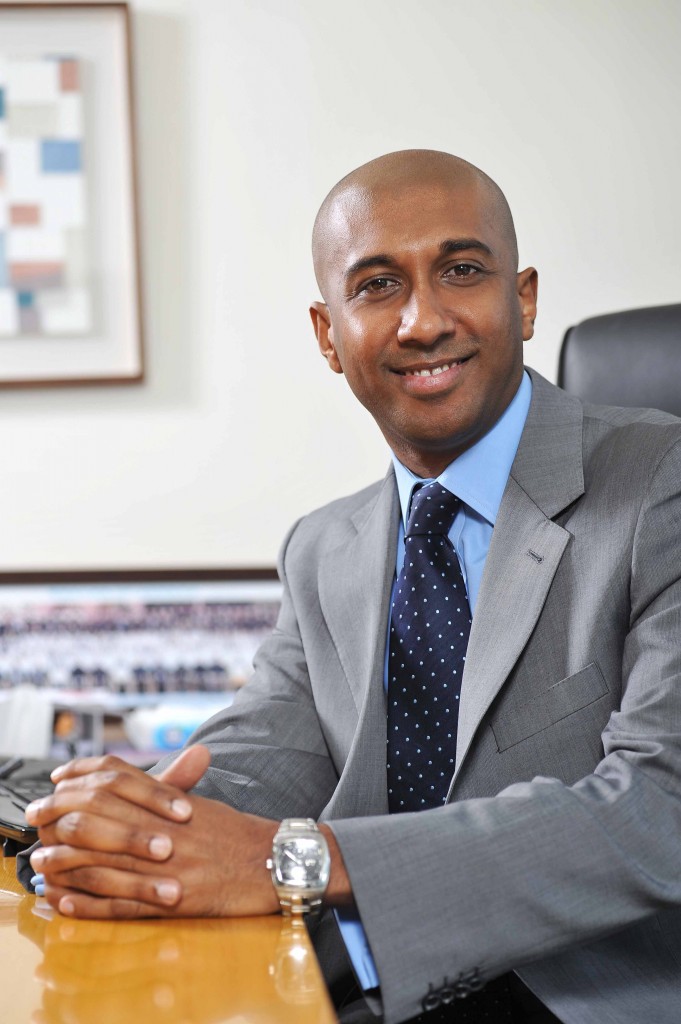ASTANA – Sanofi, one of the world’s five largest pharmaceutical companies, is celebrating its 20th anniversary in Kazakhstan this year. In an exclusive interview with The Astana Times, Central Asia General Manager Ranga Welaratne took a resolute stand for company’s highest-quality product.
“I would rather lose my entire business than lose the value of my company!” he said.
French-based Sanofi is a life-science company represented in more than 100 countries and employing more than 100,000 individuals. Sanofi Central Asia has a staff of more than 350 in Armenia, Azerbaijan, Georgia, Kyrgyzstan, Tajikistan, Turkmenistan and Uzbekistan.
“Everything you see made by Sanofi is highly ethical and highly compliant,” he said. “This year, we celebrate 20 years since Sanofi came to Kazakhstan.”
The healthcare firm is considered the leader in emerging Central Asian markets. Its mission is to bring innovation to patients across the globe, he added.
“Sanofi has been growing its business in this part of the world [in the past 55 years] and such consumer healthcare products as No Spa (equivalent to Drotaverine), Essentiale Forte and Maalox are household items in Kazakhstan produced by Sanofi that every Kazakh citizen knows,” said Welaratne.
The company supplies consumer healthcare or non-prescription products to Kazakhstan, as well as vaccines and medicine for diabetes and cardiovascular and rare diseases.
“This is also possible due to Kazakhstan’s healthcare system, as the government funds certain therapeutic areas for the population, for example diabetes products. Insulins as well as vaccines are bought by the government and distributed through proper channels to patients,” he said.
Every Kazakh citizen has come in contact and is aware of these widely-used products by the time they are adolescents, as each child is vaccinated by Sanofi products at birth.
“The children’s vaccines are as safe as they can be,” Welaratne stressed. “My children get the same vaccine. These vaccines used in Kazakhstan are the same vaccines used in Australia, France and Germany. No matter the location, Sanofi products are exactly the same everywhere. I want to be very clear on this point – Sanofi quality standards and compliance undergo the strictest regulations, including transportation. From the time it is manufactured to the time it is vaccinated, the product is temperature-controlled.”
The company wants to establish good relations with Kazakh authorities and the population.
“[With this in mind] I feel like asking – ‘How can we help?’ This is the [meaning] of our existence. So, today we are trying to work with the Ministry of Healthcare and Social Protection and other authorities to try to build a partnership that will enable us to bring our high-quality products at a very affordable price and these are not easy things to do,” he said.
Although Welaratne has travelled extensively, he admitted knowing little about this part of the world until assuming the post in Kazakhstan.
“I didn’t have many impressions about [the country], to be honest, before coming to Kazakhstan. I read a couple of books before coming. I was pleasantly surprised about Central Asia and what I observed since being here, in particular about the people and culture,” he said.
Welaratne and his family arrived in Kazakhstan in January 2016. The people, he noted, were his biggest eye-opener.
“Before coming to Kazakhstan, I read a book called ‘Why Russians don’t Smile’ and when I came here in the middle of the winter it was very cold and I did find people who weren’t really smiley. But once you get to know the people, you realise they’re very family-oriented and very warm people beyond the surface,” he said.
A native of Sri Lanka, Welaratne studied in Australia and graduated from an engineering and business school (MBA) there. He joined Sanofi in the country as a consultant and six months later was offered a full-time job.
“Sanofi had the qualities I was looking for in a company,” he said. “It’s a multi-national company with fundamentals like understanding and serving the patients and in an ethical way.”
Kazakhstan is Welaratne’s seventh Sanofi assignment. He joined the company in 2004 and had held various posts in Australia, Belgium, China, France, South Korea and the Netherlands. Commenting from experience, he noted policies in emerging markets can sometimes be a challenge for companies like Sanofi.
“The policies tend to change quickly and this is not only about Kazakhstan and this can be challenging. The funding mechanisms are not defined sometimes and pharmaceutical reforms are happening quite often, so one needs to be able to adapt the business to these challenges. There are opportunities on the other hand, being in an emerging market you get both opportunities and challenges,” he said.
“In the countries like Kazakhstan, the ecosystem in the pharmaceutical market is not mature yet but developing at a fast pace for in the past few years. Multi-national companies have been here only in the past 15 to 20 years, as opposed to such countries as the U.S. or France that have had these companies for over 150 years, so the ecosystem there is quite mature,” he added.
Welaratne noted the company is preparing for the June 28 international conference on modern approaches to managing socially-significant diseases. The conference is being coordinated with the support of the Kazakh Ministry of Healthcare, the French Embassy in Kazakhstan and Sanofi. The organisers are expecting experts from Russia, the International Diabetes Federation and the World Health Organisation.


